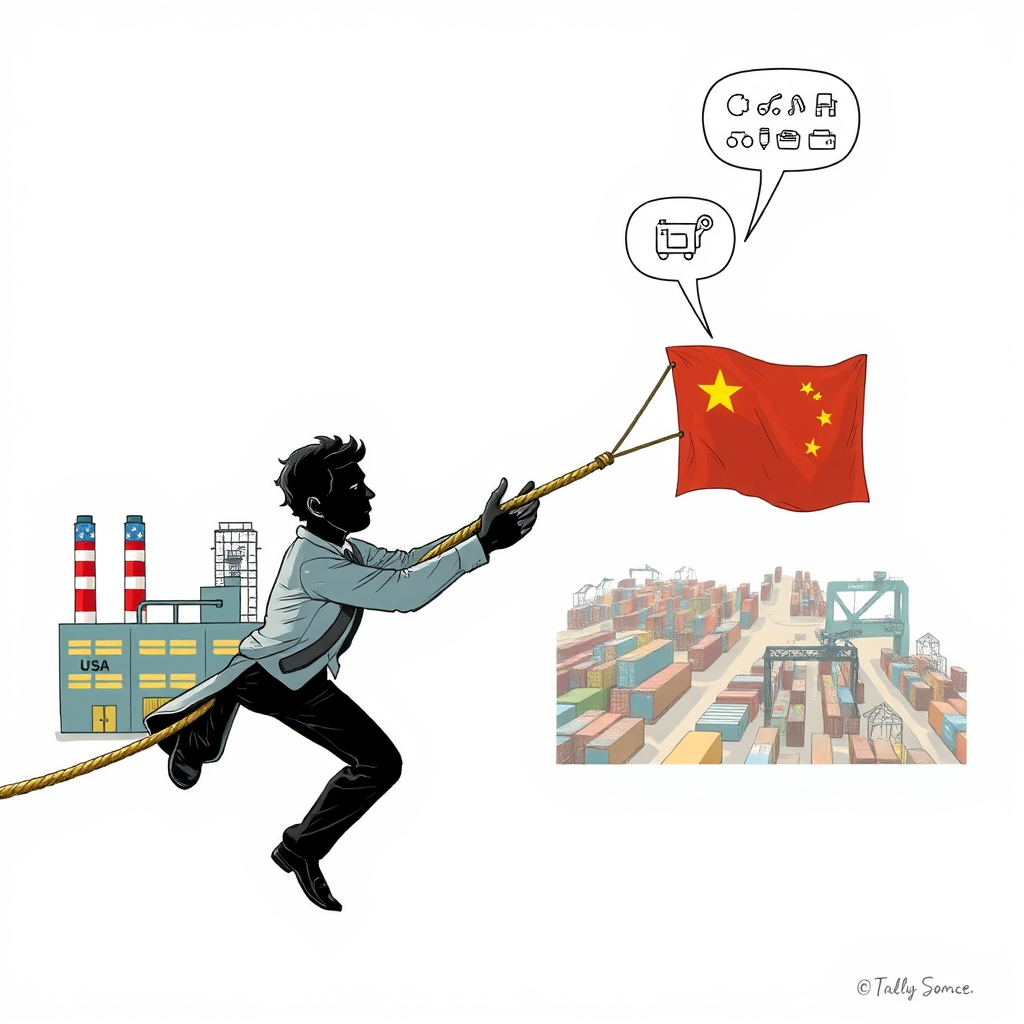Trump's Tariffs: China's Meme War Victory?

The escalating trade war between the United States and China has extended beyond tariffs and economic figures, spilling into the realm of social media and public perception. A surge of AI-generated videos and memes originating in China depict Americans unwilling or unable to perform manufacturing jobs, a direct response to former President Trump’s claims that bringing jobs back to the U.S. was a key policy goal. These viral posts, widely shared across platforms like X and TikTok, highlight a perceived disconnect between American economic aspirations and the realities of labor demands.
Experts note the memes tap into a long-standing stereotype about global labor dynamics, effectively subverting it to portray the U.S. as reliant on overseas manufacturing. The content often contrasts the perceived unwillingness of American workers with the dedication of Chinese laborers, subtly questioning the feasibility of reshoring manufacturing. While some Chinese manufacturers are attempting to bypass intermediaries and appeal directly to American consumers, concerns about counterfeit goods and scams remain.
The online narrative isn’t simply about mocking the U.S.; it’s a carefully constructed messaging campaign. According to analysts, the Chinese government views the retaliatory tariffs as a necessary defense of its economic interests, and public sentiment within China largely supports this stance. The memes reinforce the narrative of China as a strong, independent nation willing to stand up to perceived bullying from the U.S.
The impact extends beyond domestic Chinese audiences. Shares of these posts, even through VPNs, have garnered significant engagement on platforms popular in the U.S., raising questions about the spread of potentially biased information. Professor Cogan of Japan notes that in a highly polarized American political climate, the origin of the content is often less important than its alignment with pre-existing beliefs.
The situation underscores a broader shift in the trade war – a move beyond economic measures into the realm of public opinion and information warfare. While the U.S. focuses on bringing manufacturing back home, China is effectively portraying that goal as unrealistic and highlighting its own economic strength. The irony is that the very memes intended to criticize U.S. policy are proving to be a significant win for China’s public relations efforts.
Ultimately, the trade war is revealing a fundamental difference in economic strengths. The U.S. maintains a comparative advantage in the services sector, particularly in technology and innovation, while China remains a dominant force in manufacturing. The current situation suggests that both countries are adapting to this reality, but the battle for public perception is likely to continue alongside the economic one. The proliferation of these memes demonstrates that the modern trade war isn’t just about tariffs; it’s about shaping narratives and influencing global opinion.